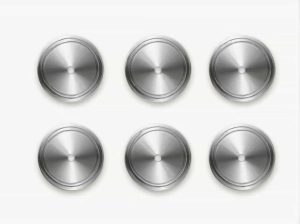Gasoline is an essential fuel used in millions of vehicles worldwide. Despite its everyday use, many people may not fully understand its chemical composition. One common question is: Is gasoline a compound or a mixture?
The answer is that gasoline is a mixture, not a single chemical compound. It is composed of various hydrocarbons and additives, making it a complex blend rather than a pure substance. This content will explore the chemical nature of gasoline, why it is considered a mixture, and how its composition affects its performance and properties.
Understanding Chemical Compounds and Mixtures
Before diving into the specifics of gasoline, it’s essential to understand the difference between a compound and a mixture.
What Is a Compound?
A compound is a substance formed when two or more elements chemically bond in fixed proportions. Compounds have uniform chemical properties and cannot be separated by physical means.
Examples of compounds include:
- Water (H2O) Composed of hydrogen and oxygen in a 2:1 ratio.
- Carbon dioxide (CO2) Made of carbon and oxygen in a fixed 1:2 ratio.
- Table salt (NaCl) A chemical bond between sodium and chlorine.
Each compound has a specific molecular formula and consistent properties that do not change regardless of the sample size or source.
What Is a Mixture?
A mixture consists of two or more substances physically combined but not chemically bonded. The components of a mixture retain their original properties and can often be separated by physical methods such as distillation, filtration, or evaporation.
There are two main types of mixtures:
- Homogeneous mixtures The composition is uniform throughout (e.g., air, saltwater).
- Heterogeneous mixtures The composition is not uniform, and different parts of the mixture can be distinguished (e.g., salad, oil and water).
Now that we understand the distinction between compounds and mixtures, lets examine where gasoline fits in.
Why Is Gasoline a Mixture?
Gasoline is a homogeneous mixture of multiple hydrocarbons, primarily derived from crude oil. Unlike a compound, its composition varies depending on the source, refining process, and required fuel performance.
1. Gasoline Contains Many Different Hydrocarbons
Gasoline is made up of hundreds of hydrocarbons, typically with 4 to 12 carbon atoms per molecule. Some common hydrocarbons found in gasoline include:
- Alkanes (paraffins) Provide combustion energy.
- Cycloalkanes (naphthenes) Improve octane rating.
- Aromatics (e.g., benzene, toluene, xylene) Enhance fuel stability.
- Olefins (alkenes) Contribute to fuel efficiency.
Since these hydrocarbons do not bond chemically to form a single compound, gasoline is classified as a mixture.
2. Gasolines Composition Is Not Fixed
Unlike a compound, where the chemical formula is always the same, gasoline varies in composition. Different refineries and fuel companies may adjust the hydrocarbon blend to meet specific environmental regulations, seasonal demands, and engine performance requirements.
For example:
- Winter gasoline contains more volatile hydrocarbons to help engines start in cold temperatures.
- Summer gasoline is less volatile to prevent excessive evaporation in hot weather.
- Premium gasoline has a higher octane rating with more additives for better engine performance.
Since gasoline does not have a fixed molecular formula, it is classified as a mixture rather than a compound.
3. Gasoline Contains Additives and Impurities
In addition to hydrocarbons, gasoline contains various additives to improve its efficiency, reduce emissions, and prevent engine damage. Some common additives include:
- Detergents Prevent carbon buildup in engines.
- Antioxidants Reduce gum formation.
- Corrosion inhibitors Protect fuel system components.
- Octane boosters Improve fuel combustion efficiency.
Since these substances are physically mixed with gasoline but not chemically bonded, they further confirm that gasoline is a mixture, not a compound.
Differences Between Gasoline and a Compound
To summarize why gasoline is a mixture rather than a compound, lets compare their properties:
| Property | Gasoline (Mixture) | Compound |
|---|---|---|
| Chemical Formula | Varies: no fixed composition | Has a specific chemical formula |
| Components | Multiple hydrocarbons and additives | Chemically bonded elements |
| Can Be Separated? | Yes, by distillation or filtration | No, requires chemical reactions |
| Consistency | Varies between fuel types | Always the same |
Based on these differences, it is clear that gasoline fits the definition of a mixture rather than a compound.
How the Mixture Nature of Gasoline Affects Its Performance
1. Octane Rating and Engine Efficiency
Since gasoline is a mixture, its octane rating can be adjusted by altering the blend of hydrocarbons. Higher octane fuels burn more efficiently, preventing engine knocking and improving performance.
2. Environmental Impact
Gasoline composition can be modified to reduce pollution. For example, ethanol-blended gasoline (E10, E15, or E85) reduces carbon emissions and reliance on fossil fuels.
3. Seasonal Adjustments for Fuel Efficiency
Because gasoline is a mixture, it can be reformulated for different climates. Winter and summer blends ensure efficient combustion and minimize evaporation losses.
Common Misconceptions About Gasolines Composition
1. Is Gasoline a Pure Substance?
No, gasoline is not a pure substance because it consists of multiple components that vary in concentration. A pure substance would have only one type of molecule with a fixed structure.
2. Is Gasoline a Homogeneous or Heterogeneous Mixture?
Gasoline is a homogeneous mixture because all its components are evenly distributed. Unlike a heterogeneous mixture, you cannot see different substances within gasoline.
3. Can Gasoline Be Turned Into a Single Compound?
No, gasoline will always remain a mixture unless it undergoes chemical reactions to isolate specific hydrocarbons, which would turn them into individual compounds like butane, octane, or benzene.
Gasoline is a mixture, not a compound. It is made up of various hydrocarbons and additives that can vary depending on its intended use, environmental regulations, and fuel performance requirements. Unlike a compound, gasoline does not have a fixed chemical formula and can be separated into its individual components through physical processes like distillation.
Understanding that gasoline is a homogeneous mixture helps explain its flexibility in formulation, its role in engine performance, and its environmental impact. Whether in summer or winter, regular or premium, gasoline remains a carefully engineered mixture that powers the modern world.



